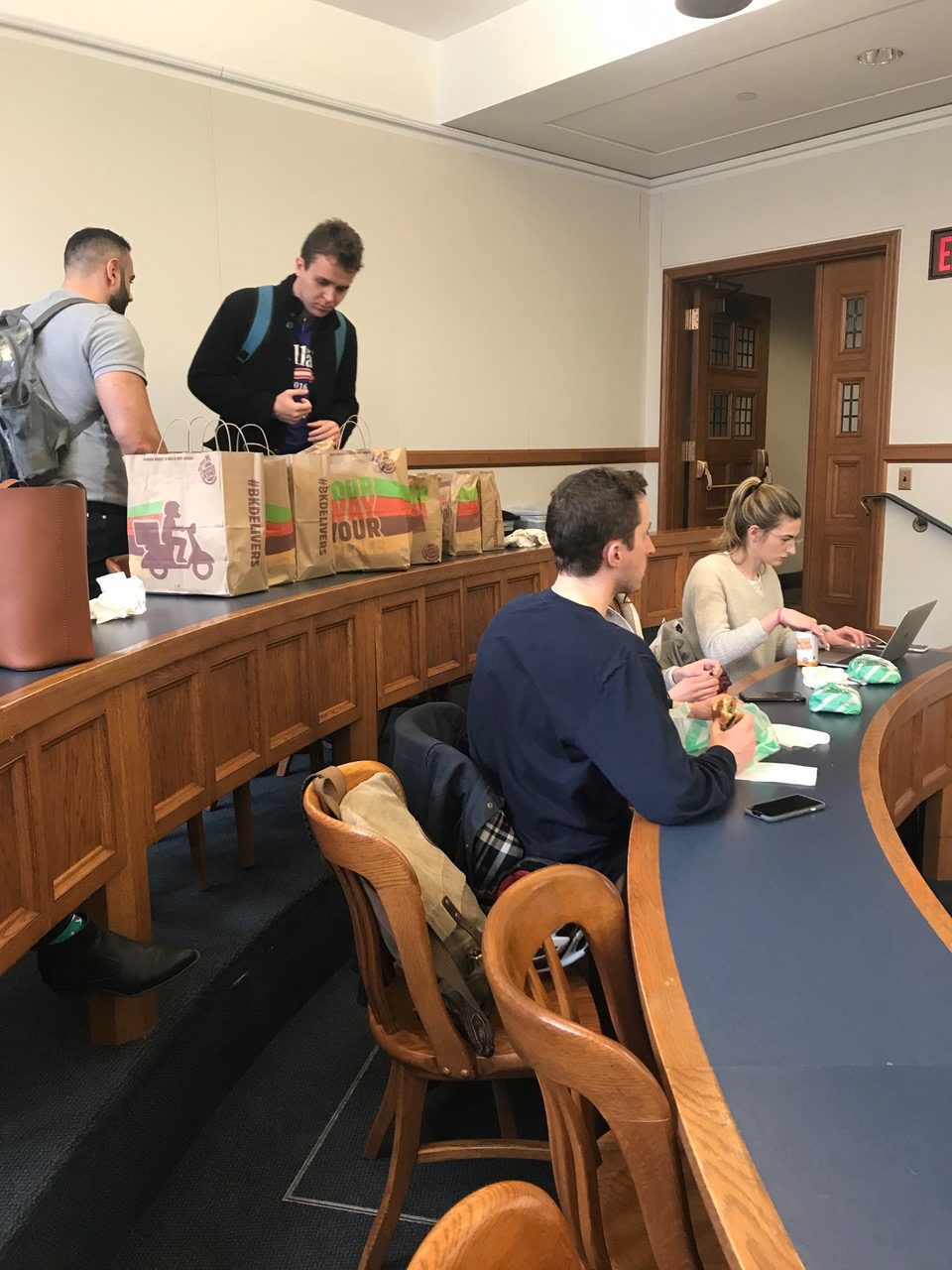
Madison Hahamy
Students and faculty members gathered on Tuesday to learn about possible alternatives to meat products, all while enjoying Burger King’s “Impossible Whoppers” — the chain’s plant-based option.
More than a dozen Yalies convened at the Sterling Law Building to hear Annie Osborn, a staff member at the Good Food Institute, speak about innovative food products and the potential obstacles facing the plant-based and cultivated meat industries. The board members of the Yale Animal Law Society and the Yale Food Law Society jointly sponsored the interactive presentation. The Good Food Institute is a nonprofit organization that advocates for the adoption of plant-based products, advises companies developing meat alternatives and educates institutions on sustainable food options.
“We hope this inspires the business leaders of the future from Yale to start their own plant-based meat companies, the future policymakers of America to help enact policies that make it easier for us to transition to these foods, and the future scientists of America to use their talents to innovate the next great product,” Manny Rutinel LAW ’21, co-chair of the Yale Animal Law Society and the Yale Food Law Society, wrote in an email to the News.
At the presentation, Osborn, who spoke via Zoom presentation, discussed the environmental and human health costs of the current animal agriculture industry. She also detailed technological innovations in creating meat alternatives and the steps needed to make these options widely available.
The Institute advocates for novel meat alternatives, including clean meat — animal byproduct cultivated from cells isolated from the creature. In her presentation, Osborn explained that the USDA is waiting on data from companies that create cultivated meat, but these options could soon be a larger part of the burgeoning alternative meat industry.
Attendee Anna Zhang ’23 said the event introduced her to options that support a more sustainable diet without sacrificing the taste of animal products. She pointed to a widespread understanding that the current food system is not sustainable, but that people struggle to cut animal products from their diets. The presentation introduced Zhang to how the food industry can “adapt and create new technologies,” she said.
The University has already made efforts to offer more plant-based alternatives in its dining halls. Viveca Morris, executive director of the Law, Ethics & Animals Program at Yale Law School, noted that “Yale Dining faces the herculean task of serving 14,000 meals every day” and has been at the forefront of the movement to provide “delicious, creative, increasingly plant-based menus for years.”
Since 2017, Yale’s 14 residential colleges have offered Beyond Burgers at grill stations. Student demand for the alternative burger has remained constant in the past three years, according to Melissa Roberts, Yale Hospitality’s communications manager.
“Yale students are highly conscious and well-informed about what they put on their plates, particularly the environmental impact of eating meat, eating too much of it, too often,” Roberts said.
Yale Dining has responded over the past nine years by transitioning to a menu of over 80 percent plant-based foods. But Rutinel said students desire more plant-based options in the dining halls.
For meat alternatives to succeed in the market, they must offer comparable levels of taste, price and convenience as do traditional animal products, Osborn said. She told the audience on Tuesday the retail appetite for plant-based burgers is on the rise. According to Osborn, there were only 100 locations of national food chains serving the Beyond Burger in 2017 compared to nearly 12,500 locations offering the meat alternative today.
Event attendees saw this tangible change, as they munched on Burger King Impossible Whoppers during Osborn’s talk.
Rose Horowitch | rose.horowitch@yale.edu
Madison Hahamy | madison.hahamy@yale.edu







